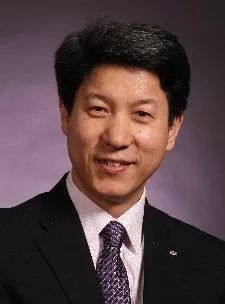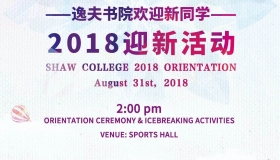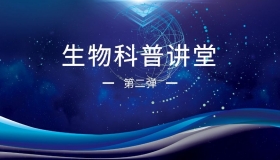香港中文大学(深圳)未来智联网络论坛
智能和联接是当前信息科技的两大主题。这两个主题的融合,是未来科技发展的主要方向之一。香港中文大学(深圳)在人工智能和网络联接方面都有深厚的人才储备。为了更好地整合这两方面的资源,融合智能与网络联接,在这一前沿方向上建设一个国际一流的科研平台,香港中文大学(深圳)继成立数据与运筹科学研究院(iDDA)之后,将于10月17日成立第二个校级研究院——“香港中文大学(深圳)未来智联网络研究院”,并于当天举行“未来智联网络”论坛。论坛将邀请多名国内外著名院士、专家、学者和各级政府领导来共同探讨智能和联接两大主题的融合,为研究院的发展提供战略咨询和指导性意见。
时间:2018年10月17日
地点:香港中文大学(深圳)道远楼理事会会议室
日程安排

参会嘉宾


题目:深度学习与自然语言理解
演讲者:何晓冬博士,京东 AI 研究院常务副院长
日期:2018年10月17日,星期三
时间:11:30-12:15
地点:道远楼理事会会议室
语言:中文
讲座概要:
何晓冬博士会先简略回顾近年来深度学习技术对语音、语言和视觉等方面的驱动,然后将着重从两个方面来探讨其在自然语言处理(NLP)方面的前沿研究,包括如何让AI通过NLP技术理解人类,如理解意图,解析语义,识别情绪,搜索推荐;和如何让AI的结果能被人类理解接受,如文本摘要,内容生成,话题展开,情感对话等。何博士也会探讨在NLP强化学习,语言/视觉跨模态智能,文本内容生成,情感和风格表达,及人机对话这些前沿方向上的最新研究进展。
主讲嘉宾简介:
何晓冬博士为京东技术副总裁、AI研究院常务副院长、深度学习及语音和语言实验室主任,华盛顿大学(西雅图)兼职教授。其工作包括DSSM(深度结构语义模型/深度语义匹配模型)、HAN(层次化注意力网络)、图像描述机器人CaptionBot等。曾任美国微软雷德蒙德研究院首席研究员(Principal Researcher)及深度学习技术中心(DLTC)负责人。研究方向主要聚焦在人工智能领域,包括深度学习、自然语言处理、语言及视觉多模态智能等。

题目:When IoT meets Big Data
演讲者:曹建农教授,香港理工大学
日期:2018年10月17日,星期三
时间:14:00-14:45
地点:道远楼理事会会议室
语言:中文
讲座概要:
In the past decade, applications of Internet of Things (IoT) such as Smart Home, Smart Cities, Smart Healthcare etc. have been deployed where the devices in our surroundings are interconnected to provide better services and comfort to humans. More recently, we witness the emerging applications in industrial internet, supply chains and other areas where the scale of the systems, the number of devices and data being generated continuously increases. As the IoT continues to develop, further potential can be realized by a combination with related technology approaches including Big Data Computing. The intersection of IoT and Big Data is a fascinating area of innovation with tremendous scope for business impact. In this talk, I will describe the evolution of IoT from instrumentation and interconnection to intelligence driven by big data analytics. When IoT meets big data, we see the direction towards smart IoT, which will facilitate and empower advanced applications. I will focus on the current challenges and future development of smart IoT leveraging big data analytics
主讲嘉宾简介:
Dr. Cao is currently a Chair Professor of Department of Computing at The Hong Kong Polytechnic University, Hong Kong. He is also the director of the Internet and Mobile Computing Lab in the department and the director of University’s Research Facility in Big Data Analytics. His research interests include parallel and distributed computing, wireless sensing and networks, pervasive and mobile computing, and big data and cloud computing. He has co- authored 5 books, co-edited 9 books, and published over 600 papers in major international journals and conference proceedings. He received Best Paper Awards from conferences including IEEE DSAA 2017, IEEE SMARTCOMP 2016, IEEE ISPA 2013, IEEE WCNC 2011,etc. Dr. Cao served the Chair of the Technical Committee on Distributed Processing of IEEE Computer Society from 2012 to 2014, a member of IEEE Fellows Evaluation Committee of the Computer Society and the Reliability Society, a member of IEEE Computer Society Education Awards Selection Committee, a member of IEEE Communications Society Awards Committee, and a member of Steering Committee of IEEE Transactions on Mobile Computing. He has also served as chairs and members of organizing and technical committees of many international conferences, and as associate editor and member of the editorial boards of many international journals. Dr. Cao is a fellow of IEEE and ACM distinguished member. In 2017, he received the Overseas Outstanding Contribution Award from China Computer Federation.

题目:Mobility-Enhanced Edge in Telligence for Ultra-reliable and Low-Latency Communications (MEET-U)
演讲者:牛志升教授,清华大学
日期:2018年10月17日,星期三
时间:14:45-15:30
地点:道远楼理事会会议室
语言:中文
讲座概要:
As the Internet of Things (IoT) and 5G mobile communications technologies develops, a hyper-connected society that makes everything in the planet connected is becoming a reality. This will necessitate the future mobile networks to more flexibly and intelligently adapt to a wide range of services. Among them, the most critical and challenging ones are the so-called mission-critical applications such as industrial Internet, networked robotics, VR/AR/MR, and connected vehicles, which require ultra-reliable and low-latency communications (URLLC). To realize that, the future mobile networks need to be fueled with additional resources (not only spectrum and energy resources, but also compute and cache resources) and enhanced intelligence in a distributed manner so that the networks can be smart enough. As a result, big data analytics, mobile edge computing/caching (MEC) and artificial intelligence (AI) will play key roles.
Meanwhile, mobility has been considering as a major obstacle to mobile communications because it may cause fading, shadowing, near-far effect, handover, roaming, etc. However, as the electric vehicles and autonomous cars are getting more and more powerful with rich capabilities of sensing, communicating, computing, caching, and powering, they can be used as movable edge servers not only to provide task-offloading services opportunistically but also to disseminate the edge intelligence to the whole network while moving. In this regard, mobility is in fact exploited to enhance the network intelligence so that the URLLC services can be realized by making the critical applications meet with the movable intelligent servers opportunistically. The key questions then include (but not limit to): 1) how to collect and process the big data in a distributed manner and generate the edge intelligence locally? 2) how to disseminate the distributed intelligence across the whole network effectively? 3) how to find and assign the best opportunities to the moving users? 4) how to efficiently provide reliability and latency guarantees to mission-critical applications?
This talk will explore advanced artificial intelligence (AI) techniques for autonomous and smart decision-makings in future wireless networks. In particular, we will combine expertise on mobile communications and AI to leverage recent advances, such as in the field of deep learning, to develop traffic and network condition prediction methods that can be used for smart task-offloading and content-caching and optimized resource allocation. We are particularly interested in the development of autonomously evolving models of network sharing that aggregates resources across technologies, different operators, and service requirements.
主讲嘉宾简介:
Zhisheng Niu graduated from Beijing Jiaotong University, China, in 1985, and got his M.E. and D.E. degrees from Toyohashi University of Technology, Japan, in 1989 and 1992, respectively. During 1992-94, he worked for Fujitsu Laboratories Ltd., Japan, and in 1994 joined with Tsinghua University, Beijing, China, where he is now a professor at the Department of Electronic Engineering. His major research interests include queueing theory, traffic engineering, mobile Internet, radio resource management of wireless networks, and green communication and networks.
Dr. Niu has served as Chair of Emerging Technologies Committee (2014-15), Director for Conference Publications (2010-11), and Director for Asia-Pacific Board (2008-09) in IEEE Communication Society, and currently serving as Director for Online Contents (2018-19) and Area Editor of IEEE Trans. Green Commun. & Networks. He received the Outstanding Young Researcher Award from Natural Science Foundation of China in 2009 and the Best Paper Award from IEEE Communication Society Asia-Pacific Board in 2013. He was also selected as a distinguished lecturer of IEEE Communication Society (2012-15) as well as IEEE Vehicular Technologies Society (2014-18). He is a fellow of both IEEE and IEICE.
- 上一篇
- 下一篇




